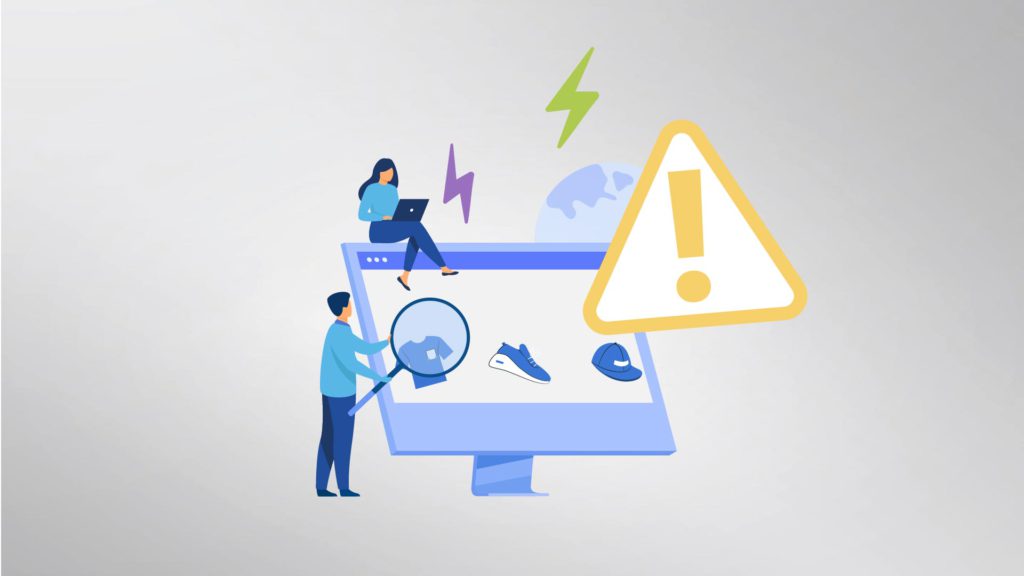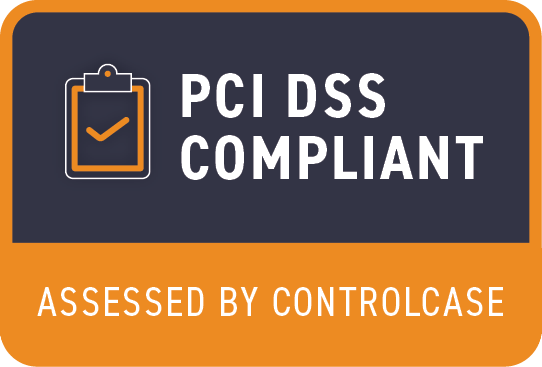The weak technological infrastructure is one of the most prominent obstacles facing e-commerce In many countries, internet services are still slow or unstable, negatively affecting the user experience while shopping online. Additionally, the lack of modern devices and necessary technical equipment can hinder companies’ ability to provide effective and reliable electronic services.
Cybersecurity and Data Protection Issues
Cybersecurity and data protection are critical elements in e-commerce. However, many companies face significant challenges in this area. These challenges include cyber hacking, identity theft, and online fraud, making customers hesitant to provide their personal and financial information online. Therefore, companies must invest in advanced security technologies and build customer trust by protecting their data.
For any e-commerce, it is essential to cover two main aspects of security:
- Customer data privacy and security
- Payment gateway security and encryption.
UPayments uses industry standards to protect and secure customer data and ensure secure payment processing. UPayments complies with PCI DSS Level 1, which means our systems and technologies adhere to high-security standards, ensuring data safety and privacy.
Difficulty Adapting to Continuous Technological Updates
Technology evolves very rapidly, making it difficult for companies to adapt to these continuous updates. Companies may need significant investments to regularly update their platforms and systems, which can be a substantial financial and logistical challenge, especially for small and medium-sized enterprises. Additionally, adapting to these updates requires continuous training of employees and improving their technical skills.
Financial Barriers to E-Commerce
High Costs of Establishing and Maintaining Online Stores
The financial costs associated with establishing and maintaining online stores are a major obstacle for many companies. Building a comprehensive e-commerce platform requires investment in software, design, development, as well as the costs of maintenance and regular updates. Costs also include securing electronic payment services, shipping, and customer service.
Electronic Payment Issues
Electronic payment is a vital element in the e-commerce process, yet it faces many obstacles. These issues include the lack of diverse payment methods that suit all customers, as well as security issues related to online payment transactions. Some customers may feel insecure when entering their credit card information online, leading to their hesitation in completing purchases.
UPayments provides secure and fast electronic payment solutions to its customers to avoid these issues.
Challenges in Accessing Funding
Startups and small businesses often face significant challenges in accessing the necessary funding to develop their e-commerce operations. Banks and financial institutions may hesitate to provide loans to these companies due to potential risks and the lack of a long business track record. This can limit the ability of businesses to invest in improving and developing their online platforms and services.
Legal Barriers to E-Commerce
Unclear Laws and Regulations Governing E-Commerce
E-commerce faces multiple legal challenges due to the lack of clear laws and regulations governing this sector in many countries. Sometimes, legislation is outdated and does not keep pace with rapid technological developments, leading to legal gaps that can be exploited by fraudsters and increasing the risks of commercial operations.
Intellectual Property Issues
Intellectual property rights pose a significant barrier to e-commerce, as there can be difficulties in protecting trademarks, copyrights, and patents online. Counterfeit products and services can spread quickly on electronic platforms, negatively affecting original companies and reducing consumer trust.
Challenges Related to Taxes and Fees
E-commerce faces significant challenges related to taxes and fees, especially when transactions are cross-border. There can be substantial differences in tax policies between countries, making it difficult for companies to comply with all tax requirements. This can lead to additional costs and complicate international business operations.
According to the Central Bank of Kuwait, any business in Kuwait is required to obtain a valid commercial license to operate an online store and obtain a payment gateway in Kuwait. There are several types of commercial licenses based on the company’s structure and type. The Kuwaiti Ministry of Commerce has introduced a “small enterprise” license to facilitate matters for Kuwaitis who wish to establish their own businesses.

Reasons for Customer Hesitation in Online Shopping
Many people hesitate to shop online for several reasons. One of the main reasons is concern about the security of financial transactions and personal information, as some fear fraud or hacking and the potential loss of their money or identity theft. Additionally:
- Some lack trust in the quality of products offered online because they cannot see or try them before purchasing.
- There is anxiety about shipping delays or problems with order delivery, making the online shopping experience seem unreliable for some.
On the other hand, some prefer personal interaction with sellers and receiving direct advice, which is difficult to achieve online. There are also:
- Technical challenges or a lack of sufficient knowledge about how to shop online.
- Fear that the products may not match the description or provided images.
All these factors contribute to people’s hesitation to rely on online shopping as their primary shopping method.
Marketing Barriers to E-Commerce
Difficulty in Building Brand and Trust
Building a strong and trustworthy brand online is one of the biggest challenges companies face in e-commerce. Companies need to invest in effective marketing strategies to attract customers and build trust, which can be costly and time-consuming. Additionally, using out-of-the-box ideas in online marketing to attract more customers is a very important factor in building customer trust.
Challenges in Digital Marketing and Advertising
Digital marketing and online advertising require specialized expertise and innovative strategies to reach the target audience. The intense competition online makes it difficult for small and medium-sized enterprises to achieve prominent visibility without significant investment in digital advertising. Furthermore, changes in search engine algorithms and social media platforms can affect the effectiveness of marketing campaigns.
Intense Competition in the E-Market
The e-market witnesses intense competition among local and international companies, making it more difficult to achieve superiority and distinction. Companies need to offer unique deals and exceptional experiences to attract and retain customers. Additionally, it requires continuous monitoring of market shifts and adapting to changing customer needs.
Frequently Asked Questions
- What are the biggest challenges facing e-commerce?
Some of the biggest challenges facing e-commerce include cybersecurity, ensuring privacy, legal regulations, and technical challenges such as technology and infrastructure. - How can electronic payment barriers be overcome?
To overcome electronic payment barriers, secure payment solutions such as reliable electronic payment services and modern security protocols like SSL can be adopted. - How can the online shopping experience be improved for customers?
The online shopping experience can be improved for customers by providing smooth and user-friendly websites and applications, offering accurate product information, and providing multiple and convenient payment options. - How can shipping and delivery issues in e-commerce be addressed?
Shipping and delivery issues in e-commerce can be addressed by selecting reliable shipping companies, offering flexible delivery options that meet customer needs, and effectively monitoring logistics operations to ensure a seamless shopping experience.





